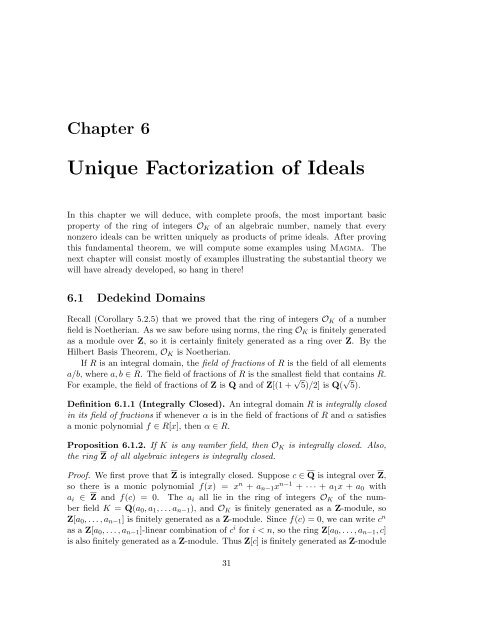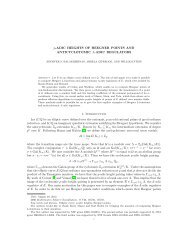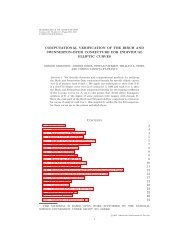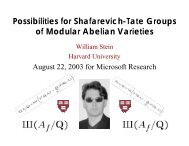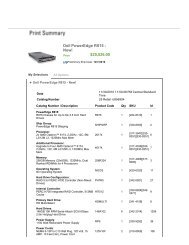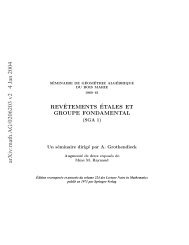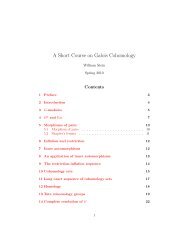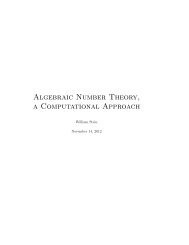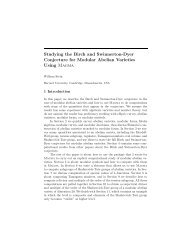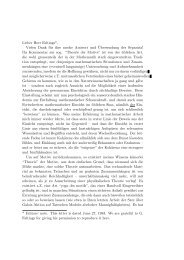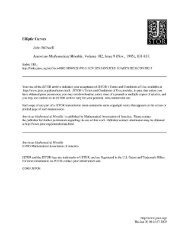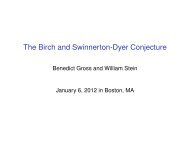A Brief Introduction to Classical and Adelic Algebraic ... - William Stein
A Brief Introduction to Classical and Adelic Algebraic ... - William Stein
A Brief Introduction to Classical and Adelic Algebraic ... - William Stein
Create successful ePaper yourself
Turn your PDF publications into a flip-book with our unique Google optimized e-Paper software.
Chapter 6<br />
Unique Fac<strong>to</strong>rization of Ideals<br />
In this chapter we will deduce, with complete proofs, the most important basic<br />
property of the ring of integers OK of an algebraic number, namely that every<br />
nonzero ideals can be written uniquely as products of prime ideals. After proving<br />
this fundamental theorem, we will compute some examples using Magma. The<br />
next chapter will consist mostly of examples illustrating the substantial theory we<br />
will have already developed, so hang in there!<br />
6.1 Dedekind Domains<br />
Recall (Corollary 5.2.5) that we proved that the ring of integers OK of a number<br />
field is Noetherian. As we saw before using norms, the ring OK is finitely generated<br />
as a module over Z, so it is certainly finitely generated as a ring over Z. By the<br />
Hilbert Basis Theorem, OK is Noetherian.<br />
If R is an integral domain, the field of fractions of R is the field of all elements<br />
a/b, where a, b ∈ R. The field of fractions of R is the smallest field that contains R.<br />
For example, the field of fractions of Z is Q <strong>and</strong> of Z[(1 + √ 5)/2] is Q( √ 5).<br />
Definition 6.1.1 (Integrally Closed). An integral domain R is integrally closed<br />
in its field of fractions if whenever α is in the field of fractions of R <strong>and</strong> α satisfies<br />
a monic polynomial f ∈ R[x], then α ∈ R.<br />
Proposition 6.1.2. If K is any number field, then OK is integrally closed. Also,<br />
the ring Z of all algebraic integers is integrally closed.<br />
Proof. We first prove that Z is integrally closed. Suppose c ∈ Q is integral over Z,<br />
so there is a monic polynomial f(x) = x n + an−1x n−1 + · · · + a1x + a0 with<br />
ai ∈ Z <strong>and</strong> f(c) = 0. The ai all lie in the ring of integers OK of the number<br />
field K = Q(a0, a1, . . .an−1), <strong>and</strong> OK is finitely generated as a Z-module, so<br />
Z[a0, . . .,an−1] is finitely generated as a Z-module. Since f(c) = 0, we can write c n<br />
as a Z[a0, . . .,an−1]-linear combination of c i for i < n, so the ring Z[a0, . . .,an−1, c]<br />
is also finitely generated as a Z-module. Thus Z[c] is finitely generated as Z-module<br />
31


